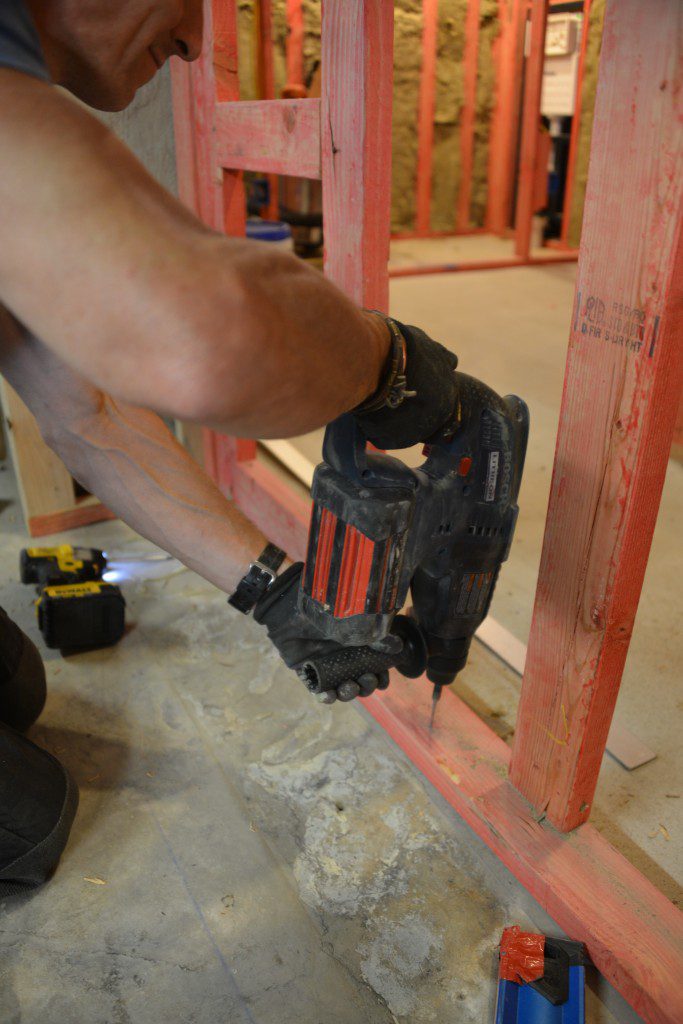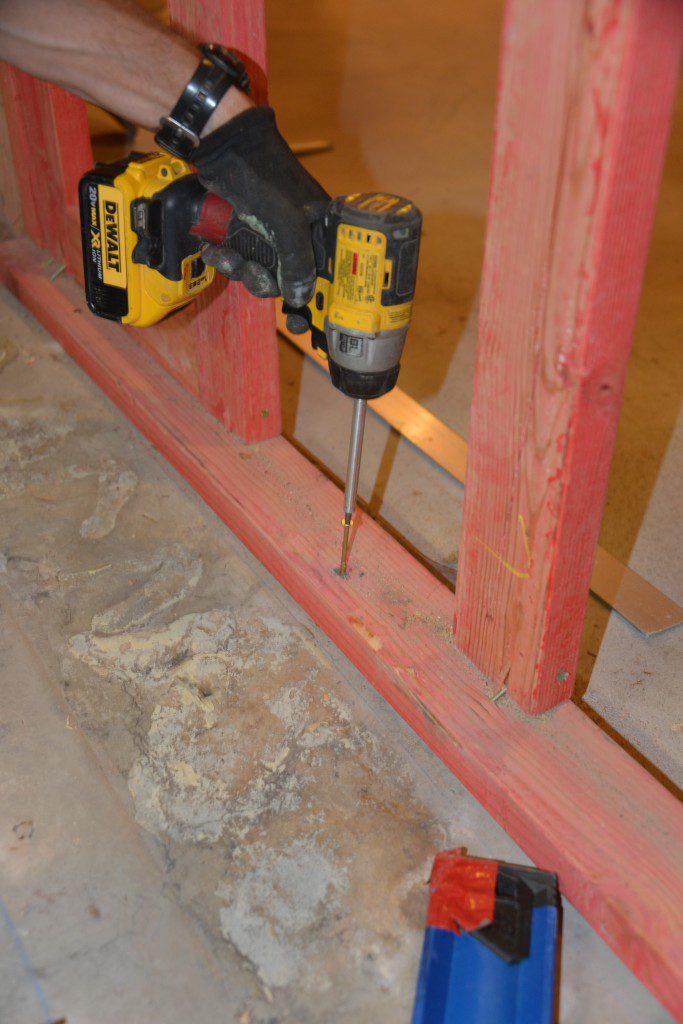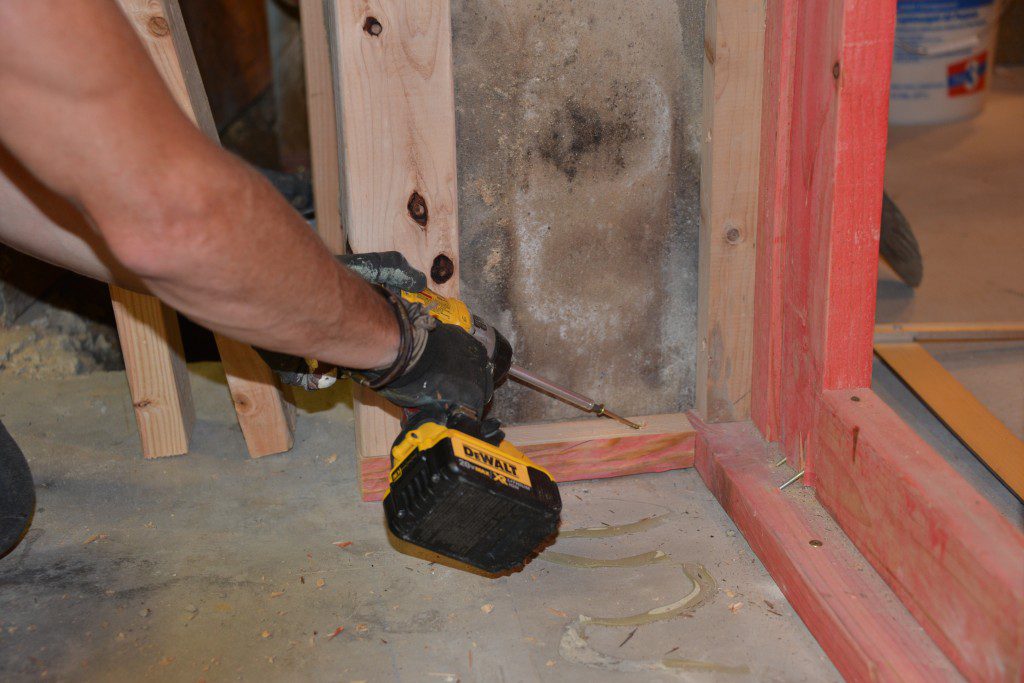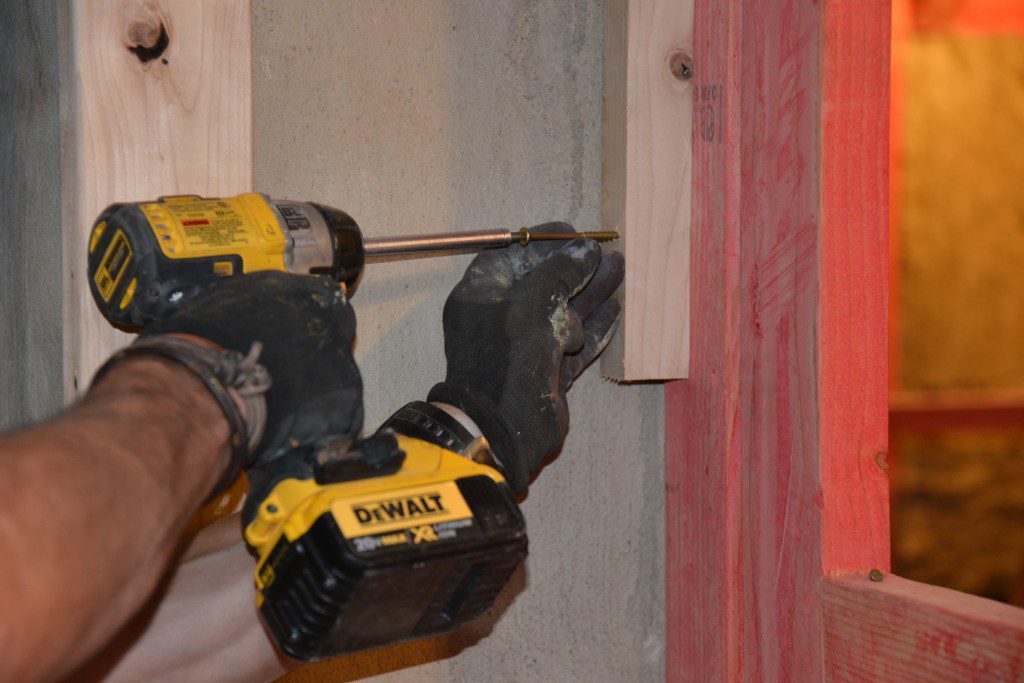
Save time, save money, and rock out on pro work and DIY projects. Yes, you too can fall in love with a screw.

It’s not an ad. Just the truth:
In one project—framing walls in a basement remod—using Spax 3-inch x #10 Multi Material Screws saved me hours on connections that I’d normally use three different fasteners for—deck screws, gun nails, and (gag) concrete screws. Because I can use one screw that performs well in many places (like me), I save time by both doing things quickly, and NOT doing other things at #$%^&* all. Let’s talk about that negative space for a minute…
Bottom plates. Basement walls’ bottom plate must be fastened to the concrete. I’ve used concrete screws (when can you ever find the screws, bit and nut-driver on the first try: Answer—never) and drive pins. They work periodically too. Generously, 50% of the time.
Spax Multi-Material screws crush the other fasteners’ success rate and ease of use. A 5/32 hole through the plate into the concrete and the Spax bores into both wood and concrete and connects solidly. And I’m not chasing around after a fasteners and a nut driver I rarely use because I’m using the fasteners I already have in my pouch.
Complicated stuff. I use them fastening complicated remodeling assemblies. Despite what you may think of Mike Holmes screwing everything together, while I haven’t asked him, I’m willing to bet it has more to do with this than some weirdness of using screws when nails would work. Framing basement walls in an old house is a bit beyond typical DIY projects because it is so complicated, but stay with me DIYers and learn something.
I could nail gun, but complicated, multi-plane walls and soffits have so much happening in so many planes of space it’s hard to see it all until you’ve got something whacked up there to look at. Once you’ve got a few hunks of wood in place, however, you can look at it and ‘edit’. Add a block, adjust an angle, realize there’s a pipe in the way, and so on.
Nails go in one direction. But screws go in both. If you screw it together, you can make the edits (take thing apart) without losing wood or fasteners to the recip saw. Nevermind the time and energy required to take things apart. (It’s so nice, ‘cuz we do it twice! is a familiar remodeler’s refrain)
DIYers: This is one trick to take your DIY projects up a notch. It won’t make you a pro, but it’ll make you a better DIYer.
Oddball stuff. I also use them connecting oddball stuff like neo-angle walls that require toe-nailing (fastening at an angle). There’s no long drywall style screw (gawwwd they suck) or deck screw on the planet I’ve been able to do this with without pre-drilling, but with the Spax Multi-Material Screws I literally get it threading into the wood, then tip it over to the angle needed and send it home. The serrated edges cut the wood and all but eliminate splitting.
So back to the punchline. At the beginning of my day of DIY projects or building work I load my pouch with one fist full of screws, from one box in one place and then use them all day. The time savings and efficiency is explosively good to me. I can throw out the concrete fasteners I rarely use anyway and streamline my fastener storage. Again, time saved. I’ve even used them to temporarily hold a deck ledger against a concrete threshold before proper fastening.
I’m not kidding. I’m hooked. And this doesn’t even count using Spax washer-head screws in DIY projects like pallets. Check that out here.












[…] 1×10, see materials above) between two trim pieces and fasten. I used 1 ¼-inch wafer head Spax Multi-Material Screws and made sure the head sunk into the wood a little so the legs could go on easily. Next, center the […]
[…] And we’ll get into it from the ground up and ask Mike Holmes Jr. about learning his trade, taking on huge projects well outside his comfort zone and see if we can shake loose one of those rare moments where work reflects life and life reflects work. The Home Free Drill-Down test is on with Mike Holmes Jr. […]